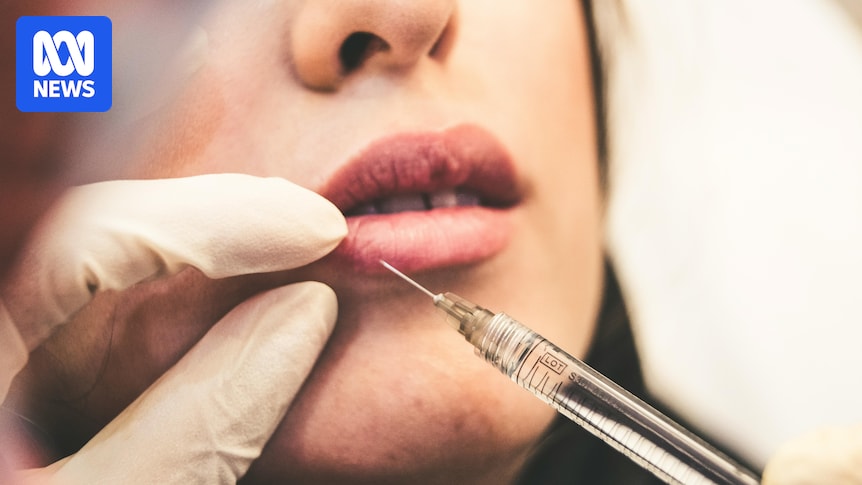
The Australian Health Practitioner Regulation Agency (AHPRA) has unveiled comprehensive new guidelines for dentists and nurses involved in non-surgical cosmetic injectable procedures. These measures are aimed at safeguarding public welfare by ensuring practitioners prioritize patient safety over profit. The guidelines, announced today, require enhanced education and training for healthcare professionals before they can administer treatments such as Botox and dermal fillers.
Under the new regulations, practitioners must complete additional training and meet minimum experience requirements before performing cosmetic procedures. This move addresses long-standing concerns about the lack of formal education for nurses and dentists entering the billion-dollar cosmetic injectable industry. While many practitioners have honed their skills over the years, AHPRA emphasizes the need for standardized training to ensure consistent safety standards across the industry.
New Advertising and Practice Standards
AHPRA’s guidelines also impose stricter advertising standards. Advertisements must now include the details of the registered practitioner performing the procedures, and social media influencers are prohibited from providing testimonials. Additionally, targeted advertising of cosmetic procedures to minors is banned. AHPRA CEO Justin Untersteiner acknowledged that these changes might not be well-received by all cosmetic injectors, predicting some might exit the industry due to the new requirements.
“There will be others who have to modify their business models and modify their practices to meet these guidelines,” Untersteiner stated. “This is a growing industry, and, I’ve got to say, what we do see in some cases is that there are people out there putting profit before patient safety.”
Practitioners have until September to comply with the new guidelines, which align with existing standards for doctors. After this period, AHPRA will actively identify and address non-compliance.
Crackdown on Non-Registered Practitioners
The introduction of these federal guidelines follows a series of enforcement actions by state and federal regulators targeting non-compliant cosmetic injectable providers. Recent incidents have highlighted the dangers posed by non-registered practitioners using off-brand or expired products, resulting in hospitalizations due to botulism. In one notable case, the NSW Health Care Complaints Commission advised patients of a Sydney clinic to undergo testing for bloodborne viruses after discovering unregistered staff administering injectables.
Across the country, state pharmaceutical and poisons regulators are conducting compliance checks on clinics, scrutinizing the possession and storage of schedule 4 medications like Botox and fillers. AHPRA has expressed concern over some telehealth practitioners’ failure to meet professional obligations, with reports of Botox prescriptions being issued in under a minute.
Mandatory Training and Education
From September, nurses will be required to complete 12 months of full-time practice before expanding their scope to include non-surgical cosmetic procedures. Practitioners must undergo further education in anatomy and physiology, patient assessment, and both theoretical and hands-on training specific to the procedures offered.
“What we’re talking about here is not just going in and having a facial … we’re talking about some kind of injection that goes underneath the skin and can create real harm,” Untersteiner emphasized.
Veronica Casey, Chair of the Nursing and Midwifery Board of Australia, welcomed the new guidelines, underscoring that public safety is paramount. “These types of procedures are undertaken every day and can have serious consequences if not done correctly,” she stated.
Regulating Advertising Practices
The new AHPRA regulations also address advertising practices, mandating that any imagery used in advertising of higher-risk cosmetic procedures must focus on information or education. This directive aims to curb the “trivialization and glamourization” of cosmetic procedures, particularly on social media platforms.
The Therapeutic Goods Administration (TGA) has been actively enforcing advertising rules, having recently sent approximately 100 “targeted guidance letters” to providers in the cosmetic injectables industry for alleged non-compliance. The agency reported over 12,000 requests for removal of unlawful advertisements related to therapeutic goods in the last financial year.
Under the new guidelines, there will be a complete ban on targeted advertising towards minors, and a mandatory seven-day cooling-off period between the initial consultation and any procedures for patients under 18. Patients are encouraged to verify a practitioner’s registration on the AHPRA website before undergoing cosmetic injectables.
These sweeping changes reflect a significant shift in the regulation of the cosmetic injectables industry in Australia, prioritizing patient safety and transparency. As the industry adapts to these new standards, the focus remains on ensuring that all practitioners are adequately trained and compliant with both state and federal laws.







